<< Previous | Displaying results 5276-5300 of 6769 for "" | Next >>
From left to right: former US President Jimmy Carter, Judge Thomas Buergenthal, former UN ambassador Andrew Young. Judge Buergenthal was the director of the human rights program for the Carter Center from 1986–89.
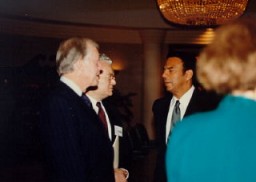
Thomas Buergenthal at Auschwitz in 1995, fifty years to the day after his forced march out of the camp as a child. Poland, 1995. With the end of World War II and collapse of the Nazi regime, survivors of the Holocaust faced the daunting task of rebuilding their lives. With little in the way of financial resources and few, if any, surviving family members, most eventually emigrated from Europe to start their lives again. Between 1945 and 1952, more than 80,000 Holocaust survivors immigrated to the United…
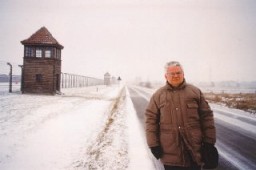
Thomas Buergenthal's three sons, Robert, John (holding daughter Eliza), and Alan. 1996. With the end of World War II and collapse of the Nazi regime, survivors of the Holocaust faced the daunting task of rebuilding their lives. With little in the way of financial resources and few, if any, surviving family members, most eventually emigrated from Europe to start their lives again. Between 1945 and 1952, more than 80,000 Holocaust survivors immigrated to the United States. Thomas was one of them.
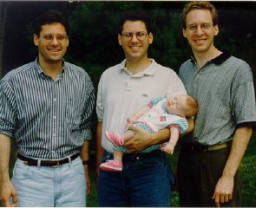
Judge Thomas Buergenthal (top row, fifth from left) and other members of the United Nations Human Rights Committee. 1995.
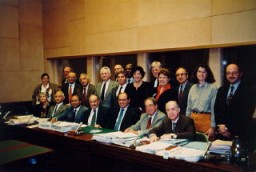
Judge Thomas Buergenthal, formal portrait for the International Court of Justice in the Hague. ca. 2003.
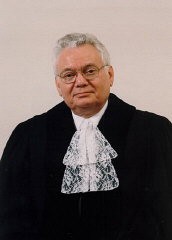
Photograph of Thomas with his wife, Peggy. With the end of World War II and collapse of the Nazi regime, survivors of the Holocaust faced the daunting task of rebuilding their lives. With little in the way of financial resources and few, if any, surviving family members, most eventually emigrated from Europe to start their lives again. Between 1945 and 1952, more than 80,000 Holocaust survivors immigrated to the United States. Thomas was one of them.
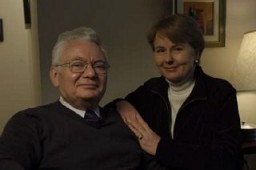
Regina and her mother at the Busko-Zdroj spa (note that her mother used a cane and little Regina has been given a child's cane). Poland, early 1930s.
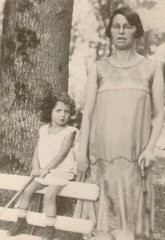
Laks family photo, Poland, ca. 1925. Sitting, left to right: Pola Laks (Regina's mother) with baby Hania, grandmother Sara Tennenblum, Aunt Andzia Tennenblum. Standing, left to right: Aunt Lodzia Laks, Aunt Regina Tennenblum, Izak Laks (Regina's father), Aunt Rozia Tennenblum, and Aunt Dora Laks.
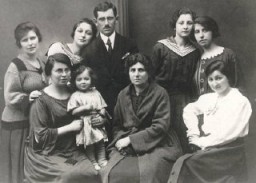
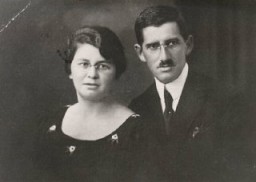
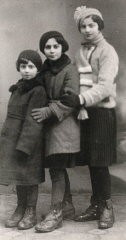
Photo taken a few weeks before World War II began. Regina is at the right of the front row. Kunow, Poland, July 28, 1939.
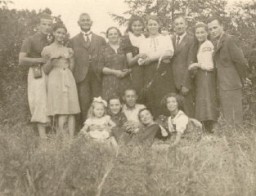
Photograph of Regina (Renia) taken on June 2, 1945, in Lodz, Poland.
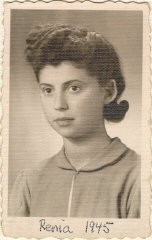
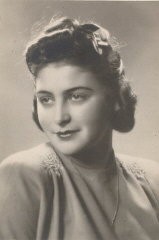
Miles Lerman (who married Regina's sister Krysia), Lodz, Poland, 1945.
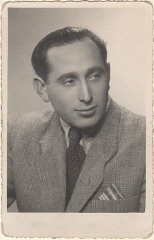
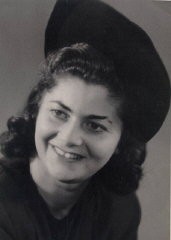
Regina at the Dueppel displaced persons camp in Berlin-Schlachtensee. Germany, September 10, 1946.
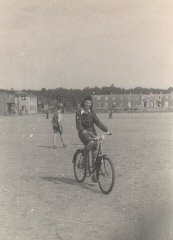
Regina (third from left) with friends while at the Dueppel displaced persons camp. Berlin, Germany, May 20, 1946.
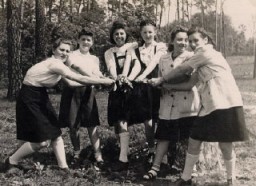
Regina (top, left) with friends at a dance in Berlin. Germany, December 26, 1946.
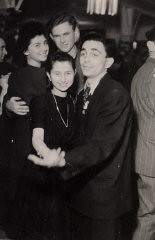
Regina (left) with two friends at Thomas Jefferson High School, Brooklyn, New York, 1948.
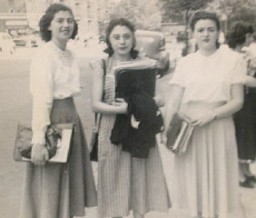
Dr. Horowitz's Hebrew class at Jefferson High School, Brooklyn, New York, 1947. (Regina is in top row, third from right, Professor Horowitz is in front row, third from right.)
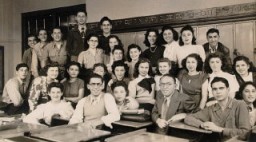
Regina upon graduation from Thomas Jefferson High School in Brooklyn, New York, February 3, 1949.
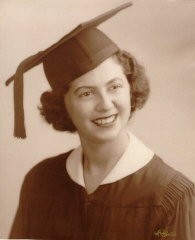
Regina in her college dormitory room at Indiana University. Bloomington, Indiana, 1952.
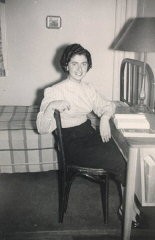
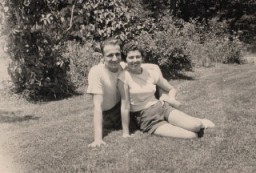
Regina met Victor Gelb, a young Jewish American, in 1950 in Brooklyn. Victor had been drafted into the Korean War. This photograph shows Victor (left) in September 1952. With the end of World War II and collapse of the Nazi regime, survivors of the Holocaust faced the daunting task of rebuilding their lives. With little in the way of financial resources and few, if any, surviving family members, most eventually emigrated from Europe to start their lives again. Between 1945 and 1952, more than 80,000…
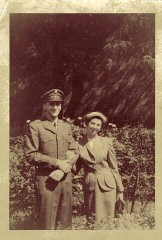
Wedding photo of Regina and Victor. New York City, March 8, 1953.
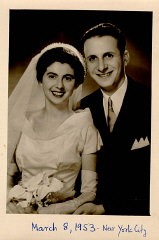
We would like to thank Crown Family Philanthropies, Abe and Ida Cooper Foundation, the Claims Conference, EVZ, and BMF for supporting the ongoing work to create content and resources for the Holocaust Encyclopedia. View the list of donor acknowledgement.